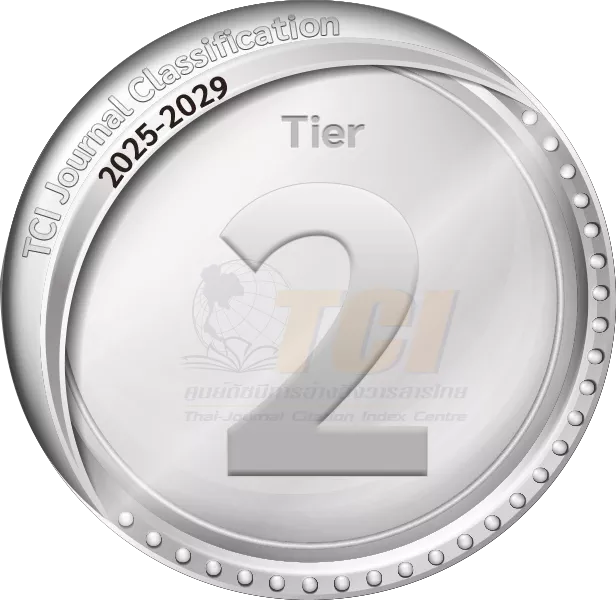Teachers’ Perceptions on Competencies and Professional Development Options: A Case Study of a Private School in Bangkok
DOI:
https://doi.org/10.14456/abacodijournal.2025.16Abstract
This research examines teachers' perceptions of their competencies based on the Southeast Asia Teachers Competency Framework, identifies the specific professional development needs of teachers at a selected private school in Bangkok, and investigates the effectiveness of current professional development programs while gathering suggestions for improvements. A mixed-methods approach was employed, combining qualitative and quantitative data from a population sampling of 100 teachers during the academic year 2023-2024. Findings indicate that teachers perceive their competencies in four key areas: knowledge, continuous improvement, community engagement, and student facilitation at a high level. Teachers expressed a need to focus on creating a positive and caring learning environment. Specific professional development needs were also rated highly in ICT competencies, beliefs and attitudes, student learning outcomes, and classroom practices. The school administration is advised to allocate more resources for training in these areas. Additionally, teachers rated the effectiveness of current professional development programs highly, particularly for on-the-job learning, learning from others, and structured learning. Teachers highlighted participation in committees or project teams as exceptionally effective. The study concludes that enhancing professional development opportunities can improve teachers' competencies, thereby positively impacting student achievement.
References
Bolam, R. (1993). Recent Developments and Emerging Issues. In G. T. C. Trust (Ed.), The Continuing Professional Development of Teacher (pp. 17-41). Springer.
Borko, H. (2004). Professional development and teacher learning: Mapping the terrain. Educational Researcher, 33(8), 3-15.
Bubb, S., & Earley, P. (2007). Leading and Managing Continuing Professional Development. Graham Handscomb, 1-25.
Creswell, J. W. (2013). Qualitative Inquiry & Research Design: Choosing among Five Approaches (3rd ed.). Sage.
Darling-Hammond, L., Hyler, M. E., & Gardner, M. (2017). Effective Teacher Professional Development. Learning Policy Institute.
Desimone, L. M., & Garet, M. S. (2015). Best practices in teachers' professional development in the United States. Psychology, Society, & Education, 7(3), 252-263.
Ertmer, P. A., & Ottenbreit-Leftwich, A. T. (2010). Teacher technology change: How knowledge, confidence, beliefs, and culture intersect. Journal of Research on Technology in Education, 42(3), 255-284.
Fernandes, C. (2019). The Relationship Between Teacher Communication, and Teacher Credibility, Student Motivation, and Academic Achievement in India [Thesis]. Concordia University.
Green, C. (2014). Education Empowerment: A Child's Right to Attend Public School. Georgetown Law Journal, 103(4), 1-45.
Griffin, G. A. (1983). Staff development. University of Chicago Press.
Guskey, T. R. (2002). Professional Development and Teacher Change. Teachers and Teaching: theory and practice, 8(3/4), 381-391.
Hobson, A. J., Ashby, P., Malderez, A., & Tomlinson, P. D. (2009). Mentoring beginning teachers: What we know and what we don't. Teaching and Teacher Education, 25(1), 207-216.
Jusuf, R., Sopandi, W., Wulan, A. R., & Sa'ud, U. S. (2019). Strengthening teacher competency through icare approach to improve literacy assessment of science creative thinking. International Journal of Learning, Teaching and Educational Research, 18(7), 70-83.
Kenny, N., Berenson, C., Chick, N., Johnson, C., Keegan, D., Read, E., & Reid, L. (2017). A developmental framework for teaching expertise in postsecondary education [Poster presented]. In International Society for the Scholarship of Teaching and Learning Conference, Calgary, Canada.
Kiymet, S. (2016). Teachers’ Competencies. International Journal of Philosophy of Culture and Axiology, 7(1), 167-175
Lewis, C., Perry, R., & Murata, A. (2006). How should research contribute to instructional improvement? The case of lesson study. Educational Researcher, 35(3), 3-14.
Little, J. W. (2012). Professional community and professional development in the learning-centered school. University of California.
McCune, V. (2018). Experienced academics’ pedagogical development in higher education: Time, technologies, and conversations. Oxford Review of Education, 44(3), 307-321.
Miller, A. D., Ramirez, E. M., & Murdock, T. B. (2017). The influence of teachers’ self-efficacy on perceptions: Perceived teacher competency and respect and student effort and achievement. Teaching and Teacher Education, 64, 260-269.
Murkatik, K., Harapan, E., & Wardiah, D. (2020). The Influence of Professional and Pedagogic Competency on Teacher’s Performance. Journal of Social Work and Science Education, 1(1), 58-69.
Nessipbayeva, O. (2012). The Competencies of the Modern Teacher. Pedagogical Sciences, Docent at Suleyman Demirel University.
Olga, E. (2012). The Competencies of the Modern Teacher. Journal of Educational Research and Practice, 6(2), 55-68.
Safin, R., Korchagin, E., Vildanov, I., & Abitov, R. (2020). On professional and pedagogical competency development of technical university teaching staff. In IOP Conference Series: Materials Science and Engineering, 890(1), 1-5.
SEAMEO INNOTECH. (2018). Southeast Asia Teachers Competency Framework (SEA-TCF). https://www.ksp.or.th/ksp2018/wp-content/uploads/2019/10/SEA-TCF-BOOK-ENG.pdf
Selvi, K. (2006). Phenomenology of Lifelong Learning. The Yearbook of Phenomenological Research.
Smylie, M. A., Mayrowetz, D., Murphy, J., & Louis, K. S. (2007). Trust and the development of distributed leadership. Journal of School Leadership, 17(4), 469-503.
Surasak, P. (2013). Teacher competency development in the 21st Century [Paper presented]. Seminar and Educational Staff, under the Office of Prae Primary Educational Service Area 1-2. Teacher development program by developing the mentor system. Prae: Nakon Prae Tower Hotel.
Thompson, M. E., & Wu, C. (2020). Sampling Theory and Practice. ICSA Book Series in Statistics. https://doi.org/10.1007/978-3-030-44246-0



